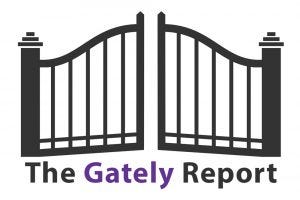This week marks the one-year anniversary of the Colonial Pipeline ransomware attack.

CrowdStrike is counting on its channel partners to help it exceed $5 billion in revenue by 2025.
 That’s according to Michael Rogers, CrowdStrike’s global channel chief. In March, CrowdStrike promoted him to vice president of global business development, channel and alliances. Rogers previously was the global vice president of partner and alliance sales.
That’s according to Michael Rogers, CrowdStrike’s global channel chief. In March, CrowdStrike promoted him to vice president of global business development, channel and alliances. Rogers previously was the global vice president of partner and alliance sales.
For its fourth quarter ending Jan. 31, CrowdStrike’s annual recurring revenue increased 65% year over year and grew to more than $1.7 billion. In addition, George Kurtz, CrowdStrike’s co-founder and chief executive officer, expects revenue to top $5 billion by 2025.

CrowdStrike’s Michael Rogers
“We’re a partner-first organization,” Rogers said. �“Over 95% of our transactions are through partners. And it’s a multifaceted strategy that encompasses solution providers, GSIs, MSSPs, OEMs, IoT partners and technology alliance partners, all of those partners harmoniously. And if you think of cloud as well, we want to have all of those partners playing a key role as we focus on that $5 billion goal.”
Partners Crucial to Continued Growth
CrowdStrike can’t do meet its growth goals without its channel partners, Rogers said.
“Our partners have always brought the scale and the need for CrowdStrike, and we’re just going to continue to expand on that,” he said. “One of our mantras is ‘delighted customers,’ but also delighted partners. So we’re always focused on improving the partner experience, ensuring that we make the right investments in the people, systems and processes to make sure our partners have the best support available to them.”
Last quarter, CrowdStrike hired a number of new individuals across all routes to market, Rogers said. That’s to support both existing partners and optimizing them for success, as well as new partners that join CrowdStrike.
Scroll through our slideshow above for more from Rogers and more cybersecurity news.
Want to contact the author directly about this story? Have ideas for a follow-up article? Email Edward Gately or connect with him on LinkedIn. |
About the Author(s)
You May Also Like


